Description
ABSTRACT
Bots in the Studio: Contemplating the Question of Authorship in Artificial Intelligence (AI)-Generated Art in Nigeria
Abraham Edoka Otene*
Just a few years ago, the thought of using text prompts to create works of art that are as close as possible to reality would seem like a thing reserved for science-fiction movies. In today’s world, however, art generated using AI has become commonplace and creates sensation with it. In Nigeria, like in most countries of the world, the creation of an artistic work automatically triggers copyright protection, provided that the work meets the usually very low threshold prescribed by the copyright law. Traditionally, to produce the kind of sophistication reflected in these works of art, an artist with decades of experience would have expended several hours in the studio. Upon creating the masterpiece, the artist would be considered by the copyright law as the work’s author and entitled to the bundle of rights provided by the law. However, with generative AI tools such as Mid-journey, anyone can give prompts to the computer and produce a sophisticated work of art. This raises the question of who, if any, should be considered as the work’s author.
While Nigeria has not dealt with the question of authorship of such works either at the legislative, executive, or judicial level, there is no doubt that it is only a matter of time before the question arises. This work seeks to explore that question under the Copyright regime of Nigeria drawing extensively from how other jurisdictions have dealt with or are dealing with issues it raises and concludes that the best approach the country should take when it finally has to deal with it is to recognise the end user of the AI tool as the author of the artistic work. The work is divided into five parts. Part I commences with an introduction of the work. In Part II, we attempt an overview of the concept of generative AI and proceed in Part III to consider the philosophical basis for the recognition of proprietary status in outputs of the intellect. Part IV considers an overview of Nigeria’s copyright law, particularly the prerequisites for artistic works to be copyrightable. Part V considers the possible approaches for determining how to assign authorship of AI-generated art and specifically makes a case for recognising authorship in the end user of the AI system. We close with a conclusion and recommendation in Part VI.
Keywords: Artificial intelligence, authorship, generated arts, proprietary rights.
INTRODUCTION
The copyright regime in Nigeria, like in several countries, guarantees certain exclusive rights to authors of artistic works once the works meet the requirements of originality and fixation. Text-to image generating AI systems now allow users to enter prompts into the system and generate artistic…
*LL.B (Hons), B.L, Barrister and Solicitor of the Supreme Court of Nigeria

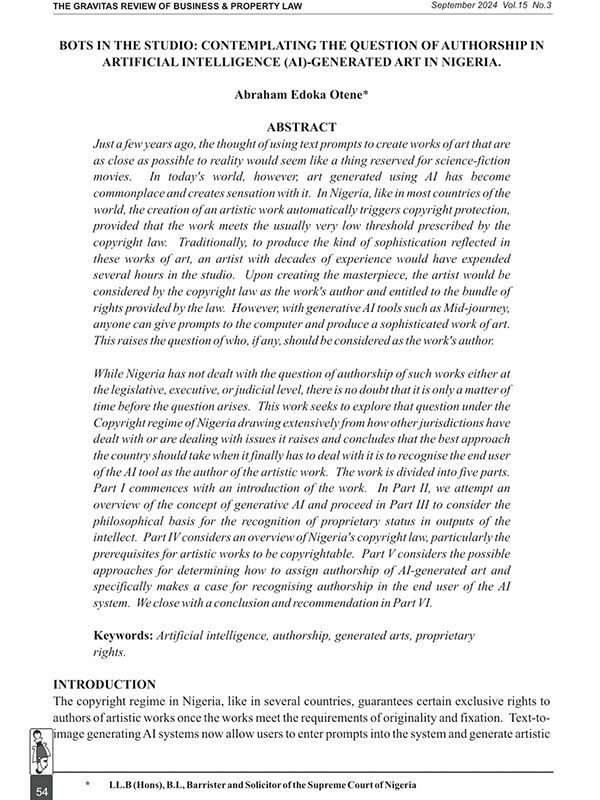
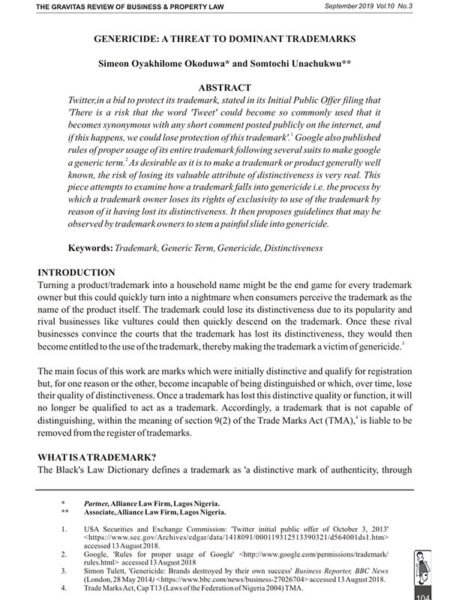
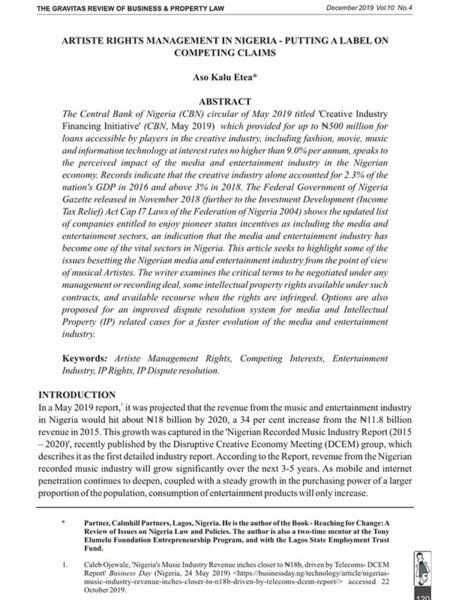
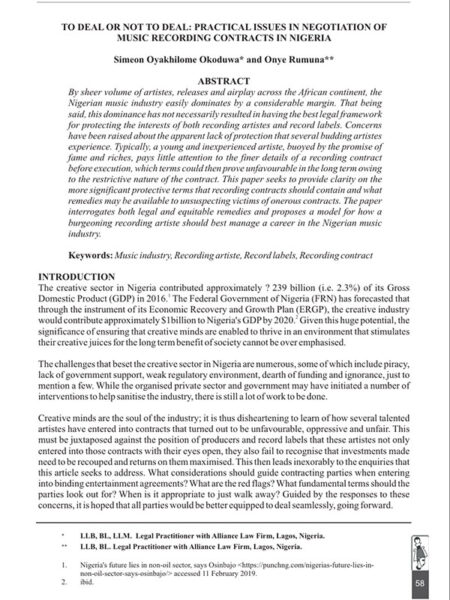
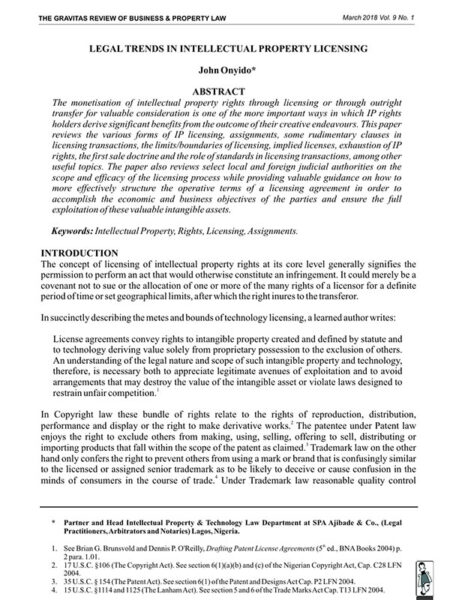


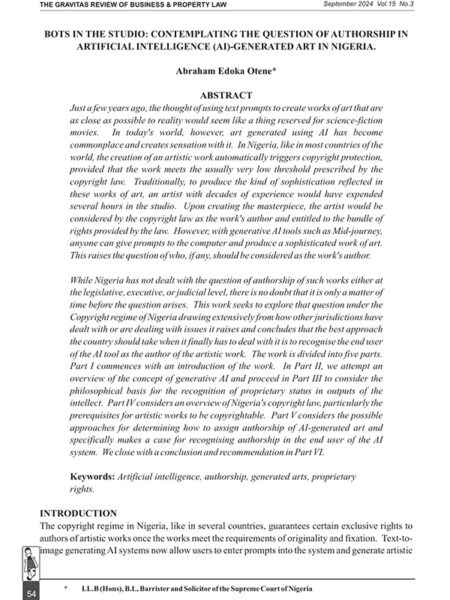
Reviews
There are no reviews yet.